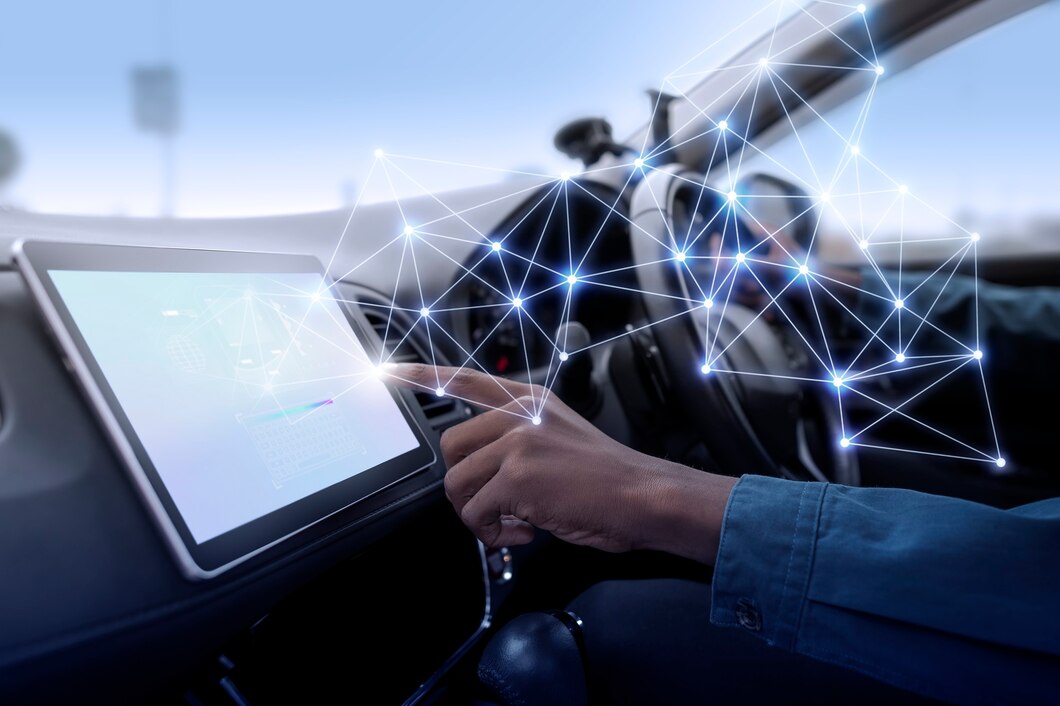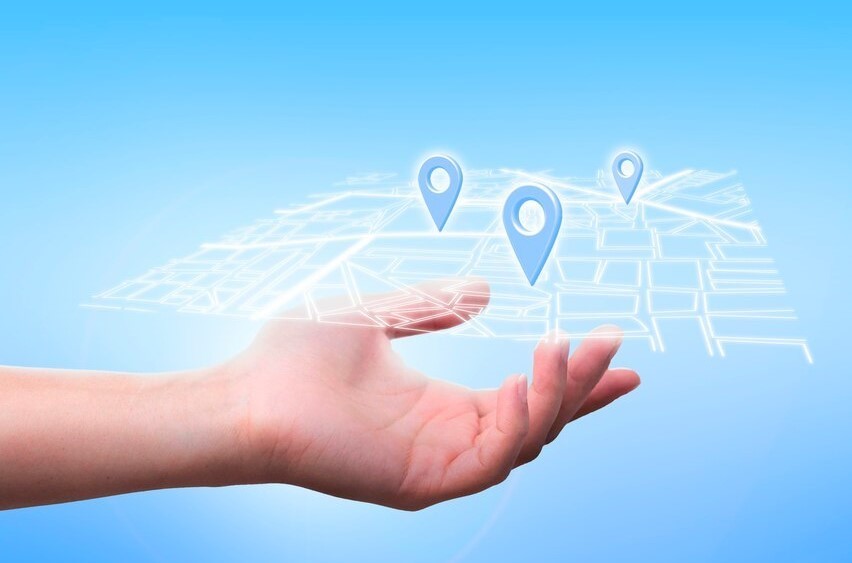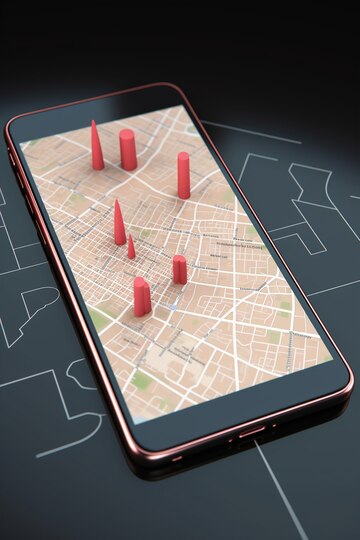GPS Technology: How It Works and Why It’s Important for Your Family






Global Positioning System (GPS) technology has revolutionized the way we navigate the world. What began as a tool for military navigation has evolved into an essential part of daily life, helping people find their way, track their belongings, and even ensure the safety of their loved ones. For families, GPS technology offers a variety of practical applications that can enhance security, provide peace of mind, and improve the overall quality of life. In this article, we will explore how GPS technology works, its various applications, and why it is crucial for your family’s safety and well-being.
Understanding GPS Technology
What is GPS?
The Global Positioning System (GPS) is a satellite-based navigation system that allows users to determine their precise location anywhere on Earth. GPS was originally developed by the United States Department of Defense for military use but was made available for civilian use in the 1980s. Today, GPS technology is integrated into a wide range of devices, including smartphones, vehicles, and dedicated GPS trackers.
GPS works by using a network of satellites that orbit the Earth. These satellites continuously transmit signals that can be received by GPS devices on the ground. By calculating the time it takes for the signals to travel from multiple satellites to the receiver, the device can determine its exact location in terms of latitude, longitude, and altitude.
How Does GPS Work?
GPS technology relies on a process called trilateration to determine a user’s location. Trilateration involves measuring the distance between the GPS receiver and at least three GPS satellites. Here’s how it works:
- Step 1: Signal Transmission: GPS satellites orbit the Earth and continuously transmit signals that contain the satellite’s location and the precise time the signal was sent.
- Step 2: Signal Reception: The GPS receiver, such as a smartphone or dedicated GPS device, receives these signals. The receiver must pick up signals from at least three satellites to calculate a 2D position (latitude and longitude) and from four or more satellites to calculate a 3D position (latitude, longitude, and altitude).
- Step 3: Distance Calculation: The GPS receiver calculates the distance to each satellite based on the time it took for the signal to travel from the satellite to the receiver. This is done by multiplying the time delay by the speed of light.
- Step 4: Location Determination: Using the distance measurements from multiple satellites, the GPS receiver determines its position by finding the intersection point of the spheres created by each distance measurement. This process is known as trilateration.
The accuracy of GPS depends on several factors, including the quality of the GPS receiver, the number of satellites in view, and environmental conditions such as weather and terrain. In optimal conditions, GPS can provide location accuracy within a few meters.
The Importance of Geolocation Services
What Are Geolocation Services?
Geolocation services refer to the use of GPS and other technologies to determine the geographic location of a device or individual. These services are widely used in various applications, including navigation, mapping, location-based services, and tracking. For families, geolocation services are particularly valuable for keeping track of loved ones, ensuring their safety, and staying connected.
How Geolocation Services Enhance Family Safety
Geolocation services play a crucial role in enhancing family safety by providing real-time location data and enabling proactive measures to prevent dangerous situations. Here are some ways geolocation services can benefit your family:
- Real-Time Tracking: With geolocation services, you can monitor the real-time location of family members, ensuring they are safe and where they are supposed to be. This is particularly useful for tracking children, elderly relatives, and individuals with special needs.
- Geo-Fencing: Geo-fencing allows you to set up virtual boundaries around specific areas, such as home, school, or a playground. If a family member crosses these boundaries, you receive an alert, allowing you to take immediate action if needed.
- Location Sharing: Geolocation services enable family members to share their location with each other, making it easier to coordinate activities, meet up, and stay connected, especially during trips or in crowded places.
- Emergency Assistance: In case of an emergency, geolocation services can provide the exact location of a family member, allowing first responders to reach them quickly. Many location tracking apps also include SOS features that can be activated in emergencies.
By leveraging geolocation services, families can stay informed about the whereabouts of their loved ones, reduce anxiety, and respond more effectively to potential safety concerns.
Applications of GPS Technology for Families
Family Locator GPS Tracker: Find Your Loved Ones
A family locator GPS tracker is a device or app designed to help families keep track of each other’s locations. These trackers are particularly popular among parents who want to monitor their children’s movements, caregivers of elderly individuals, and anyone concerned about the safety of their loved ones. Here’s how family locator GPS trackers can benefit your family:
- Tracking Children: Parents can use GPS trackers to monitor their children’s movements, whether they are at school, playing in the neighborhood, or out with friends. This provides peace of mind and ensures that children are safe at all times.
- Monitoring Elderly Relatives: For families with elderly members, especially those with cognitive impairments such as dementia, GPS trackers offer a way to keep track of their location and ensure they don’t wander off or get lost.
- Enhancing Personal Safety: Family members can use GPS trackers to enhance their own safety, especially when traveling alone or in unfamiliar areas. The ability to share location data with trusted contacts adds an extra layer of security.
- Coordinating Family Activities: GPS trackers make it easier to coordinate family activities, such as trips, outings, and events. By sharing real-time location data, family members can stay connected and ensure that everyone stays together.
Family locator GPS trackers come in various forms, including wearable devices, smartphone apps, and standalone GPS units. They offer a range of features, from basic location tracking to advanced options like geo-fencing, SOS alerts, and location history.
Tracker GPS Locator: Ensuring the Safety of Your Belongings
In addition to tracking people, GPS technology can also be used to monitor the location of valuable belongings, such as vehicles, luggage, and personal items. A tracker GPS locator is a device that can be attached to these items to track their location in real time. Here’s why using a GPS locator for your belongings is important:
- Theft Prevention: GPS locators can help prevent theft by allowing you to monitor the location of your valuable items. If your car, bike, or other belongings are stolen, you can use the GPS data to track them down and recover them quickly.
- Luggage Tracking: When traveling, GPS locators can be attached to your luggage to ensure it doesn’t get lost or misplaced. This is particularly useful in busy airports or when traveling to unfamiliar destinations.
- Asset Management: Businesses and individuals who need to manage multiple assets, such as vehicles, equipment, or inventory, can use GPS locators to monitor the location and movement of these items, improving efficiency and security.
- Peace of Mind: Knowing that your valuable belongings are being tracked provides peace of mind, reducing the stress and anxiety associated with the potential loss or theft of these items.
GPS locators for belongings are often small, portable devices that can be easily attached to or hidden within the item you want to track. They work in conjunction with location tracking apps, which allow you to monitor the location of your belongings from your smartphone or computer.


How GPS Trackers Work: A Deeper Dive into the Technology
The Components of a GPS Tracker
Understanding how GPS trackers work involves examining the key components that make up these devices. A typical GPS tracker includes the following elements:
- GPS Receiver: The GPS receiver is the core component of the tracker, responsible for receiving signals from GPS satellites and calculating the device’s location based on those signals.
- Cellular Modem: In many GPS trackers, a cellular modem is used to transmit the location data to a remote server or directly to a user’s device via a mobile network. This allows for real-time tracking and communication.
- Battery: GPS trackers are powered by batteries, which can range from rechargeable lithium-ion batteries to long-lasting batteries that provide months of power on a single charge.
- Processor: The processor in a GPS tracker handles the data processing, including calculating location, managing power consumption, and controlling communication with the user’s device.
- Memory: Memory storage in a GPS tracker is used to store location history, settings, and other data that may be needed for later analysis or reference.
- Housing: The outer housing of a GPS tracker is designed to protect the internal components from environmental factors, such as water, dust, and impact.
These components work together to provide accurate and reliable location tracking, making GPS trackers essential tools for a wide range of applications.
The Role of Satellites in GPS Tracking
Satellites are the backbone of the GPS system, providing the signals that GPS trackers use to determine their location. The GPS satellite constellation consists of at least 24 operational satellites that orbit the Earth in six different planes. These satellites are arranged in such a way that at least four satellites are visible from any point on Earth at any given time.
Each GPS satellite transmits a unique signal that includes the satellite’s location, the time the signal was sent, and other important data. When a GPS tracker receives signals from multiple satellites, it uses the information to calculate its position using the process of trilateration, as described earlier.
In addition to GPS, other global navigation satellite systems (GNSS) are also in use, including GLONASS (Russia), Galileo (European Union), and BeiDou (China). Many modern GPS trackers are designed to work with multiple GNSS systems, providing greater accuracy and reliability, especially in challenging environments.
Understanding Location Accuracy
The accuracy of a GPS tracker’s location data depends on several factors, including the quality of the GPS receiver, the number of satellites in view, and environmental conditions. Here’s a closer look at the factors that affect location accuracy:
- Number of Satellites: The more satellites a GPS tracker can receive signals from, the more accurate the location calculation will be. In general, a GPS receiver needs signals from at least four satellites to calculate a 3D position (latitude, longitude, and altitude) with high accuracy.
- Signal Quality: The quality of the GPS signal can be affected by factors such as weather, terrain, and obstructions like buildings and trees. In open areas with a clear view of the sky, GPS accuracy is typically higher. In urban canyons or heavily wooded areas, signal quality may be reduced, leading to lower accuracy.
- Receiver Sensitivity: The sensitivity of the GPS receiver also plays a role in location accuracy. High-sensitivity receivers can pick up weaker signals and provide more accurate location data, even in challenging environments.
- Differential GPS (DGPS): DGPS is a technique that improves the accuracy of GPS by using a network of fixed ground-based reference stations. These stations provide correction data to GPS receivers, reducing the margin of error and increasing location accuracy to within a few centimeters in some cases.
- Assisted GPS (A-GPS): A-GPS is a technology that enhances GPS performance by using data from cellular networks to assist in the location calculation. A-GPS is particularly useful in urban environments where GPS signals may be weak or blocked by tall buildings.
Understanding these factors can help you choose the right GPS tracker for your needs and ensure that you get the most accurate location data possible.
Why GPS Technology is Important for Your Family
Enhancing Family Safety and Security
The primary reason many families invest in GPS technology is to enhance safety and security. Whether it’s tracking a child’s location, monitoring an elderly relative, or ensuring the security of valuable belongings, GPS trackers provide an extra layer of protection that can make a significant difference in critical situations.
For example, parents can use a family locator GPS tracker to monitor their children’s movements and receive alerts if they stray too far from a designated area. This can be particularly valuable in crowded places like amusement parks, shopping malls, or public events. Similarly, caregivers of elderly individuals with dementia can use GPS trackers to ensure that their loved ones don’t wander off and get lost.
In addition to personal safety, GPS technology can also be used to protect valuable assets, such as vehicles, equipment, and personal items. By using a tracker GPS locator, families can monitor the location of their belongings in real time, reducing the risk of theft and increasing the chances of recovery if an item is stolen.
Providing Peace of Mind
One of the most significant benefits of GPS technology is the peace of mind it provides. Knowing that you can monitor the location of your loved ones and valuable belongings at any time offers reassurance and reduces anxiety, especially in situations where safety is a concern.
For parents, the ability to track their children’s location in real time and receive alerts if something goes wrong is invaluable. For families with elderly relatives, GPS trackers offer a way to ensure that their loved ones are safe and secure, even if they are not physically present to monitor them.
In addition to safety, GPS technology also makes it easier to stay connected with family members during trips, outings, and events. By sharing real-time location data, families can coordinate activities more effectively, ensuring that everyone stays together and enjoys their time together.
Improving Emergency Response
In emergency situations, time is of the essence. GPS technology can play a crucial role in improving emergency response times by providing accurate location data that can be used to guide first responders to the scene. Whether it’s locating a lost child, rescuing a hiker in distress, or responding to a medical emergency, GPS trackers can provide the information needed to ensure a swift and effective response.
Many GPS trackers are equipped with SOS features that allow users to send an emergency alert with their location to designated contacts or emergency services. This can be a lifesaver in situations where the user is unable to communicate verbally or is in a remote location where help may be difficult to find.
Facilitating Family Coordination and Communication
Beyond safety and security, GPS technology also offers practical benefits for family coordination and communication. By using geolocation services, families can share their location with each other, making it easier to meet up, coordinate activities, and stay connected, even when they are apart.
For example, during family trips or outings, GPS trackers can help family members find each other in crowded places or unfamiliar locations. Parents can use GPS to keep track of their children’s whereabouts, ensuring that everyone stays together and enjoys the experience.
GPS technology also makes it easier to plan and execute family activities, such as road trips, hikes, and other outdoor adventures. By using GPS for navigation and location sharing, families can explore new places with confidence, knowing that they can always find their way back and stay in touch with each other.


Choosing the Right GPS Tracker for Your Family
Key Features to Consider
When selecting a GPS tracker for your family, it’s important to consider the features that are most important to you. Different GPS trackers offer different sets of features, so it’s essential to choose one that aligns with your specific needs and preferences. Here are some key features to consider:
- Real-Time Tracking: The ability to monitor the location of family members and belongings in real time is crucial for ensuring safety and security. Look for GPS trackers that offer real-time tracking with frequent location updates.
- Geo-Fencing: Geo-fencing allows you to set up virtual boundaries around specific areas, such as home, school, or a playground. If a family member crosses these boundaries, you receive an alert, allowing you to take immediate action if needed.
- Battery Life: Battery life is an important consideration, especially if you plan to use the GPS tracker for extended periods or in remote locations. Look for trackers with long-lasting batteries that can provide days or even weeks of power on a single charge.
- SOS Alerts: Many GPS trackers come with SOS features that allow users to send an emergency alert with their location to designated contacts or emergency services. This can be a lifesaver in situations where the user is unable to communicate verbally or is in a remote location where help may be difficult to find.
- Durability: If you plan to use the GPS tracker in outdoor or rugged environments, it’s important to choose a device that is durable and weather-resistant. Look for trackers with water-resistant or waterproof ratings, as well as those that are designed to withstand impact and harsh conditions.
- Ease of Use: The GPS tracker should be easy to use, with a user-friendly interface and intuitive controls. This is especially important for elderly users or those who may not be familiar with technology.
Cost Considerations
When choosing a GPS tracker for your family, it’s important to consider the cost, including the price of the device itself and any associated subscription fees. Many GPS trackers require a monthly subscription to access real-time tracking, location history, and other premium features.
While the cost of a GPS tracker may vary depending on the features and capabilities, it’s important to weigh the benefits against the price. In many cases, the peace of mind and security provided by a GPS tracker are well worth the investment, especially when it comes to the safety of your loved ones.
The Future of GPS Technology and Its Impact on Families
Advancements in GPS Technology
As GPS technology continues to evolve, we can expect to see new developments that further enhance its capabilities and applications. Some of the key advancements to watch for include:
- Improved Accuracy: Advances in satellite technology and data processing are expected to provide even more precise location tracking, reducing the margin of error to just a few centimeters in some cases.
- Expanded Coverage: The expansion of satellite networks, including the deployment of low Earth orbit (LEO) satellites, will improve GPS coverage in remote and hard-to-reach areas, making it easier to track loved ones and belongings in any location.
- Integration with AI and Machine Learning: The integration of GPS data with artificial intelligence (AI) and machine learning algorithms will enable more predictive and proactive safety measures, such as automated alerts and dynamic route planning.
- Wearable Technology: The development of wearable GPS devices, such as smartwatches and fitness trackers, will make it even easier to monitor the location of family members and ensure their safety.
- Enhanced Privacy and Security: As GPS technology becomes more widespread, there will be a growing focus on privacy and security, with new measures being developed to protect users’ data and ensure that location information is only shared with trusted contacts.
The Growing Role of GPS in Family Life
As GPS technology becomes more advanced and accessible, its role in family life is expected to grow. From enhancing personal safety to improving emergency response, GPS trackers are likely to become an even more integral part of our daily routines. Whether it’s through standalone devices, wearable technology, or smartphone apps, GPS trackers will continue to provide peace of mind and security to individuals and families around the world.
Moreover, the integration of GPS with other smart technologies, such as home automation systems and connected vehicles, will create new opportunities for enhancing safety and convenience. For example, future GPS trackers could automatically alert emergency services if they detect unusual behavior, such as a fall or a sudden deviation from a normal route.
Conclusion: The Importance of GPS Technology for Your Family
In conclusion, GPS technology plays a crucial role in enhancing the safety, security, and well-being of families. Whether it’s tracking the location of loved ones, protecting valuable belongings, or improving emergency response times, GPS trackers offer a powerful solution that can make a real difference in your life.
By investing in a reliable family locator GPS tracker or tracker GPS locator, you can ensure that your family is protected and connected, no matter where they are. The peace of mind provided by GPS technology is invaluable, allowing you to focus on what matters most: the safety and happiness of your loved ones.
As GPS technology continues to evolve, its applications will only expand, offering new and innovative ways to protect and support individuals and families. Whether you’re looking to monitor your child’s whereabouts, ensure the safety of an elderly relative, or simply stay connected during a family outing, GPS trackers offer a powerful solution that can make a real difference in your life.
In a world where safety is paramount, the value of GPS technology cannot be overstated. It is more than just a tool for navigation—it is a lifeline that provides reassurance, support, and, in many cases, the difference between safety and danger.




Lets try Findee
for Free
Download our latest version and please don’t
forget to rate :)

Subscribe Newsletter
Subscribe to the newsletter to be the first to receive interesting news
Let's try out!
Copyright © All Rights Reserved



